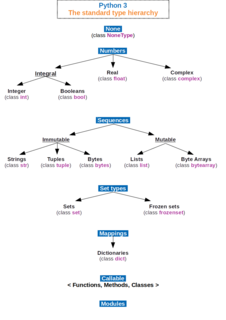| Developer(s) | Intel |
|---|---|
| Repository | |
| Website | github |
River Trail (also known as Parallel JavaScript) is an open source software engine designed by Intel for executing JavaScript code using parallel computing on multi-core processors.
A software engine refers to a central part of a computer program. The concept has however taken on slightly different meanings depending on context.

Intel Corporation is an American multinational corporation and technology company headquartered in Santa Clara, California, in the Silicon Valley. It is the world's second largest and second highest valued semiconductor chip maker based on revenue after being overtaken by Samsung, and is the inventor of the x86 series of microprocessors, the processors found in most personal computers (PCs). Intel ranked No. 46 in the 2018 Fortune 500 list of the largest United States corporations by total revenue.

JavaScript, often abbreviated as JS, is a high-level, interpreted programming language that conforms to the ECMAScript specification. It is a language that is also characterized as dynamic, weakly typed, prototype-based and multi-paradigm.
Contents
River Trail was announced at the Intel Developer Forum in September 2011, and demonstrated using a Firefox extension developed by Intel. Brendan Eich, the original author of JavaScript, promised that he would promote River Trail within Ecma International, saying "The demo shows a 15x speedup over serial JavaScript. It lights up the ridiculously parallel hardware in modern CPUs and GPUs, for audio, video, image processing, automated voice response, computer vision, 3D gaming, etc. – all written in memory-safe, clean, functional JavaScript, without threads and their data races and deadlocks." [1] Because River Trail leverages Intel's OpenCL SDK [2] it can exploit multiple CPU cores as well as data parallel instructions (ex. AVX, SSE) and the speedup can be greater than the CPU core count would imply.

Mozilla Firefox is a free and open-source web browser developed by The Mozilla Foundation and its subsidiary, Mozilla Corporation. Firefox is available for Windows, macOS, Linux, BSD, illumos and Solaris operating systems. Its sibling, Firefox for Android, is also available. Firefox uses the Gecko layout engine to render web pages, which implements current and anticipated web standards. In 2017, Firefox began incorporating new technology under the code name Quantum to promote parallelism and a more intuitive user interface. An additional version, Firefox for iOS, was released on November 12, 2015. Due to platform restrictions, it uses the WebKit layout engine instead of Gecko, as with all other iOS web browsers.

Brendan Eich is an American technologist and creator of the JavaScript programming language. He co-founded the Mozilla project, the Mozilla Foundation and the Mozilla Corporation, and served as the Mozilla Corporation's chief technical officer and briefly its chief executive officer. He is the CEO of Brave Software.

Ecma is a standards organization for information and communication systems. It acquired its current name in 1994, when the European Computer Manufacturers Association (ECMA) changed its name to reflect the organization's global reach and activities. As a consequence, the name is no longer considered an acronym and no longer uses full capitalization.
A native implementation of River Trail in Firefox's SpiderMonkey JavaScript engine was announced in September 2012 [3] and was added to nightly Firefox builds in April 2013. [4] By January 2015, the code had been removed from Firefox. [5] [6]
A JavaScript engine is a computer program that executes JavaScript (JS) code. The first JS engines were mere interpreters, but all relevant modern engines utilize just-in-time compilation for improved performance.







